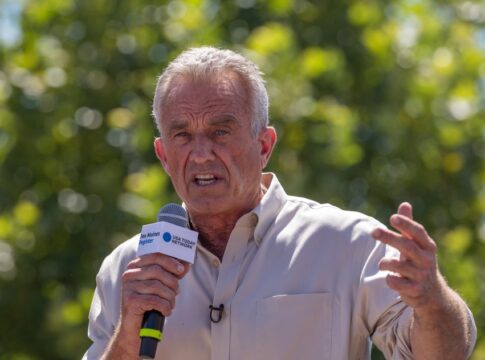Within four years, Robert F. Kennedy Jr., the secretary of health and human services, has suggested that all Americans be outfitted with health monitoring devices. Like the Fitbit and Apple Watch, the gadgets are a component of Kennedy’s “Make America Healthy Again” (MAHA) program. The program seeks to gather information to address the rising prevalence of chronic diseases and assist Americans in adopting healthier lifestyle choices.
Kennedy’s Vision for American Health Monitoring
Health and Human Services Secretary Robert F. Kennedy Jr. has unveiled a bold proposal to equip all Americans with health tracking devices within the next four years. The plan, announced during a recent House hearing, positions wearable technology as a cornerstone of Kennedy’s “Make America Healthy Again” (MAHA) agenda. These devices, comparable to popular consumer products like Apple Watch, Fitbit, Whoop, and Oura rings, would range in cost from $99 to $800, with the government exploring funding options to make them accessible to more Americans.
The administration plans to launch a major advertising campaign promoting these devices, positioning them as tools for personal health empowerment rather than government surveillance. According to Kennedy, the technology could help individuals lose weight, exercise more, and make healthier lifestyle choices without resorting to expensive pharmaceutical interventions. “You know the Ozempic is costing $1,300 a month,” Kennedy noted, suggesting wearables offer a more cost-effective approach to health management.
HHS RFK Jr is raising eyebrows saying that Americans having “wearables” – or electronic device collecting health related data – are “key to the MAHA agenda” and that his vision is “EVERY American is wearing a wearable within 4 years”.
— Anthony (@AnthonyCabassa_) June 24, 2025
Broader Health Initiatives and Concerns
The tracking device proposal is just one component of Kennedy’s broader health agenda, which includes controversial plans to investigate rising rates of chronic diseases and developmental conditions. Kennedy has separately announced plans to launch a study on the causes of autism, which has generated significant discussion among affected families and medical experts. His characterization of autism as a “preventable disease” conflicts with the scientific consensus that genetics play a significant role in its development.
“I don’t appreciate people presenting themselves as experts when they don’t know a damn thing about something,” said Copeland, a critic of Kennedy’s approach to autism.
Kennedy’s planned autism registry has raised additional concerns about data security and potential misuse to support controversial health views. CBS News reported, “Between 10 and 20 outside groups of researchers will be given grant funding and access to the records to produce Kennedy’s autism studies.” The lack of specific details about these studies has left many families concerned about their direction and scientific rigor.
RFK Jr. says wearables are key to the MAHA agenda—and he’s about to launch one of the largest ad campaigns in HHS history to promote them.
“It’s a way people can take control of their own health.”
“They can see what food is doing to their glucose levels, their heart rates… and… pic.twitter.com/syJ3Zl5JXl
— MAHA PAC🗽 (@MAHA_PAC) June 24, 2025
Mixed Reactions to Health Tracking Proposal
The tracking device proposal has garnered mixed reactions across the political spectrum. Surgeon General Casey Means has publicly supported wearables for their potential to improve health awareness and generate valuable health data. On social media, Means emphasized the value of having objective health metrics readily available, suggesting they could revolutionize personal health management.
However, critics have pointed out an apparent contradiction in Kennedy’s stance, noting his previous opposition to biometric surveillance and electromagnetic radiation from such devices. Privacy advocates worry the initiative could lead to an unwanted surveillance state, with personal health data potentially being collected, stored, and accessed without proper safeguards. Others have questioned whether the government should play such an active role in monitoring citizens’ health metrics.
Family Perspectives on Kennedy’s Health Approach
Some families affected by autism have expressed appreciation for Kennedy’s recognition of the challenges they face. Van Den Berghe, parent of a child with autism, stated, “My child, I do truly believe, that if he were able to tell us, he would not want autism because this has not affected him in a positive way. So, for me, having someone finally recognize my son and his population is amazing.” Others remain cautious about how Kennedy frames these issues.
As the proposal moves forward, the administration will need to address critical questions about implementation, privacy protections, and the scientific basis for health interventions that might result from the collected data. The initiative represents a significant shift toward integrating health technology more deeply into Americans’ daily lives, with potential benefits for public health if properly implemented with appropriate safeguards.


